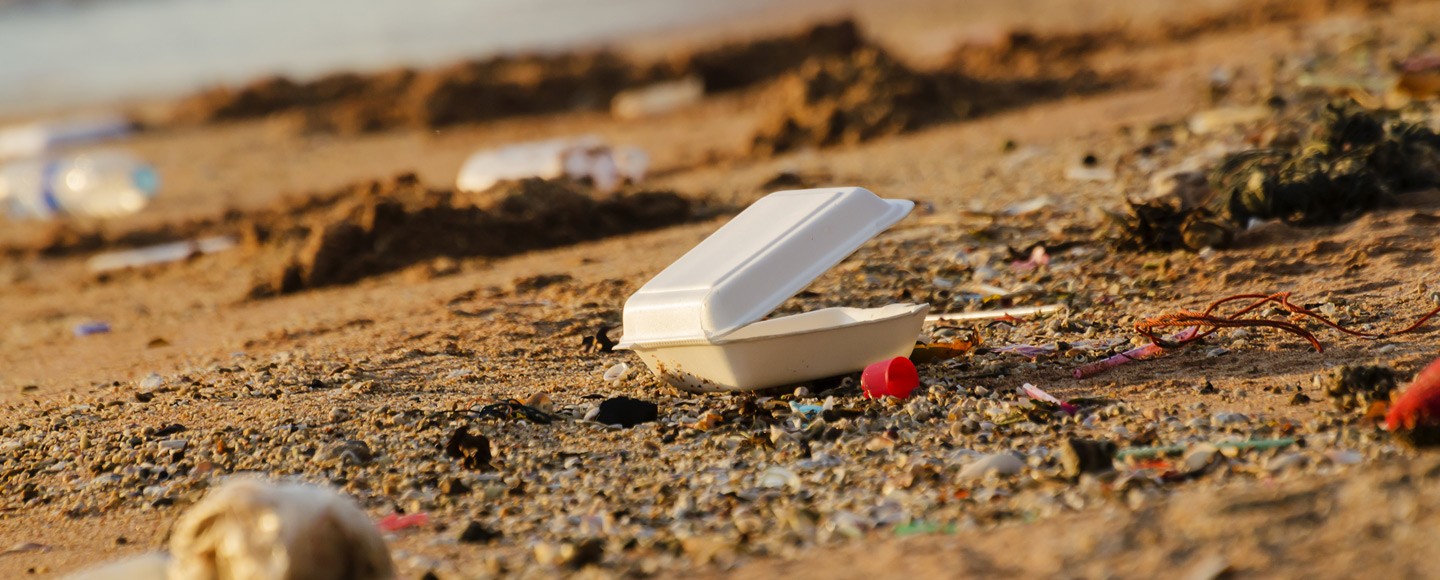
“Preemption” is a legal term to describe when a higher authority takes control of a certain issue or area of regulation. In the world of plastic pollution, preemption is when statewide legislation is used to take away a local city's right to pass a bag ban, foam ban or other local ordinance to prevent plastic litter. Ten states currently have this type of preemption in the U.S. In two states, Florida and Texas, there is pending litigation over whether preemption exists and whether local municipalities have the right to pass plastic pollution regulations for the betterment of their local communities.
Coral Gables, Florida
Coral Gables, nicknamed “the Beautiful City” is a town of 50,000 people in Florida's Miami-Dade County that is home to University of Miami. In order to protect the health and safety of their community, the City Commission of Coral Gables decided to pass an expanded polystyrene (“EPS”) foam foodware ban in December 2015. The ban applies to city vendors, at special events and in take-out food containers. The Florida Retail Federation challenged their authority to pass such an ordinance in July 2016, but Miami-Dade Circuit Judge Jorge Cueto strongly rejected the Federation's arguments, siding with the City and ruling that their ordinance was not preempted by the legislature's subsequent action to pass Florida Statute sec. 500.90, which the court found was 1) unconstitutional because it was in violation of Home Rule Amendment, 2) unconstitutionally vague, and 3) arbitrary and capricious. The Florida Retail Federation, who has members include Super Progreso, owner of 7-Eleven franchise, appealed the lower court decision and the case will be tried in Appellate Court in Florida with a hearing on December 13th at Florida 3rd Appellate District.
Surfrider Foundation strongly supports the City's right to regulate plastic pollution and entered the case as an amicus curiae (“friend of the court”) party well-represented by Earthjustice in order to affect this potentially precedent-setting case. Surfrider argues the importance of “Home Rule” versus state encroachment of local rights. The amicus brief focused on (1) the in appropriate use of preemption itself and (2) environmental harm of EPS foam foodware. For example, EPS food service container use has significant environmental and economic impacts. Because EPS does not biodegrade and travel easily through air and water, EPS food service packaging contributes significantly to landfill trash, marine pollution, urban blight, and litter clean-up costs. Surfrider Foundation Florida Chapters teamed up with Campaign To Defend Local Solutions, the League Of Women Voters Of Florida, 1000 Friends Of Florida, Rethink Energy Florida, the Florida Wildlife Federation, Save The Manatee Club and the Center for Biological Diversity on this legal effort and eagerly awaits the Appellate Court's ruling.
Laredo, Texas
Meanwhile, in Texas another local municipality is fighting for their right to fight plastic pollution. The City of Laredo is being taken to the Texas Supreme Court by the Laredo Merchants Association regarding the power to pass a local bag ban. Interestingly, in this case, an amicus brief was entered by the Texas Cotton Ginners' Association and a Cattle Rancher.
The cotton ginners are concerned that the plastic bags contaminate the cotton crop and are impossible to remove, explaining that plastic carryout bags are a particular problem because they are the same color as cotton bolls and indistinguishable when they’re ready for harvest. The cattle rancher is concerned with his cow’s stomach being being obstructed after eating plastic bag litter, which can cause fatality for the animal if not other major health effects and possible contamination. According to the Texas Department of Agriculture, the top two commodities in terms of cash receipts in Texas in 2012 were Cattle ($10.5 billion) and Cotton ($2.2 billion). Thus, this amicus brief represents substantial commodities to Texas’ economy. Additional, supporting amicus briefs have been entered by Texas Municipal League and Texas City Attorneys Association, Texas State Senator Judith Zaffirini, the City of Galveston, and The City of Houston. The Texas Public Policy Foundation, the State of Texas, and the Texas Retailers Association have entered amicus briefs in support of preemption.
Here, the Texas Supreme Court will hear arguments early in the new year on January 11, 2018. The Texas Surfrider Chapter network, along with many other home rule advocates, will be in attendance to witness a hearing that could have far-reaching implications for other local governments in Texas that have adopted or seek to adopt local plastic bag laws.